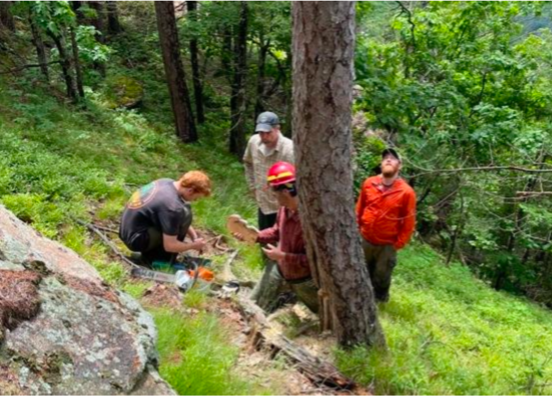
Assessing fire-dependency in natural red pine forests of the Northeast.
Principal Investigator: Simon Pendleton, Plymouth State University.
In the face of changing climate, the need for data driven management practices of Northern Forests, especially with respect to the use of fire, is becoming increasingly vital. Changes in climate, land use, and fire suppression attitudes since the 1910s have decreased the frequency and severity of wildfires in the region, shrinking and fragmenting the fire-adapted forest ecosystems. Some advocate that this absence of fire helps return the Northern Forest to a more natural trajectory following the high fire frequency of the colonial to industrial periods. Another interpretation postulates that fire is a natural and required component for fire-adapted forests, such that continued suppression risks loss of remaining, relic stands of the pre-colonial era. By reconstructing fire histories using a multi-method approach, our research seeks to provide context for wildfire, and aid in managing northeastern forests for future climates, based on historical structure and function, and use of fire as an adaptation tool. In the Upper Saco and Swift River Valleys in northern New Hampshire, we will combine tree-ring records from fire-adapted red pine stands, with charcoal and pollen analyses from nearby lake and bog sediments to build comprehensive regional records of fire from modern to pre-colonial times. These data will be disseminated to the relevant agencies and stakeholder groups, including the Indigenous community, to guide development of evidence-based forest management practices with respect to fire. Additionally, the proposed work will support hands-on experiential learning and training for multiple undergraduate students at Plymouth State University.